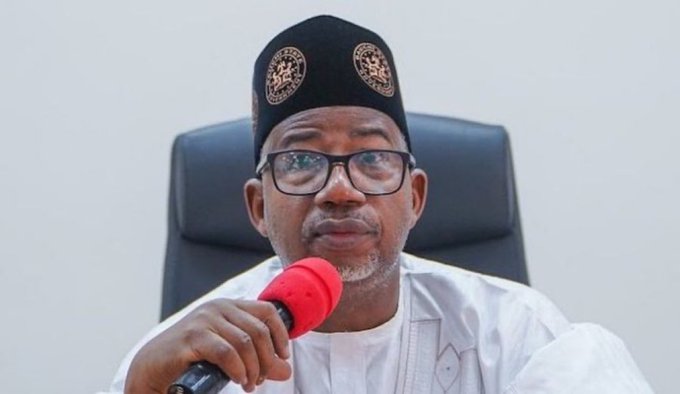Bauchi State Governor Bala Mohammed has raised a red flag over President Bola Tinubu’s proposed tax reforms, warning that the northern region could face severe financial difficulties if the policies are passed. According to Governor Mohammed, these reforms will strip northern states of the necessary funds to pay civil servants, construct critical infrastructure, and address the region’s growing economic challenges.
The controversial tax measures, which have sparked intense debates across the country, have particularly alarmed leaders from the northern part of Nigeria. Governor Mohammed, who has long been vocal about the developmental disparities between northern and southern Nigeria, is now calling on the federal government to reconsider the reforms or risk triggering an economic collapse in northern states.
A Regressive Policy for Northern States?
The governor’s comments were made during a meeting with the Christian community in Bauchi State on Wednesday, December 26, 2024. The community had come to the Government House for their annual Christmas homage when the issue of the tax reforms came up.
Governor Mohammed did not mince words in his criticism, accusing the tax reforms of being inherently “anti-northern.” He argued that the policies would exacerbate the financial challenges already faced by northern Nigeria, where poverty levels remain higher than in other parts of the country.
“Tinubu’s tax reforms will leave us with no money to pay salaries, no money for road construction, and no resources for the kind of development that the people of the north deserve,” the governor stated, his voice filled with urgency. “This is not just a matter of pride or ego; it is a matter of survival for the northern states.”
His remarks reflect a broader sense of frustration among northern governors, who feel that the policies, if implemented, will disproportionately affect their regions, which rely heavily on federal allocations to fund essential public services.
A Divided Nation?
The northern region, which includes 19 states across the northwest, northeast, and north-central geopolitical zones, has long struggled with underdevelopment. High unemployment rates, poor infrastructure, and a lack of investment in education and healthcare continue to plague the area. Governor Mohammed’s concerns come at a time when the northern states are already grappling with these systemic challenges, and many fear that the tax reforms will only worsen the situation.
“There is a real danger that these reforms will lead to an economic crisis in the north,” Governor Mohammed continued. “Without the necessary funds, states will be unable to meet their obligations, including paying civil servant salaries, completing vital infrastructure projects, and maintaining basic services for their people.”
The governor’s criticisms echo those of other northern leaders, who have voiced concerns about the potential negative impact of the proposed tax changes. Many believe that the policies could shift the balance of power and resources toward southern Nigeria, a region that has historically benefitted more from federal revenue.
Concerns Over Economic Inequality
Governor Mohammed’s statements highlight a critical issue in the ongoing debate over Nigeria’s fiscal policies: the growing economic divide between the north and the south. While the southern states—especially Lagos and oil-producing regions—generate significant revenue through taxes and natural resources, northern states rely heavily on federal allocations to fund their budgets.
According to recent data from Nigeria’s Bureau of Statistics, the northern region contributes far less to the country’s tax base compared to the south. For example, Lagos, Nigeria’s commercial capital, generates billions in tax revenue annually, whereas states in the north, including Bauchi, depend on federal transfers to meet their financial obligations.
“The situation has not been this dire in the past,” Governor Mohammed said. “But now, we are being asked to shoulder an even greater burden, while the government seems to ignore the realities we face in the north. This policy will only deepen the existing divide between the north and the south.”
The governor further emphasized that the government must listen to the concerns of the northern states and seek ways to balance the economic disparities between the regions.
Calls for Reforms to be Reconsidered
Governor Mohammed’s call for a reversal of the proposed tax reforms has gained traction among other northern governors and political figures. They argue that while tax reforms are necessary for Nigeria’s economic growth, these changes must be carefully crafted to ensure they do not disproportionately affect less wealthy regions.
“The federal government must take into account the unique circumstances of the northern states,” said Mohammed. “We cannot afford to implement policies that will push us further into economic hardship. If this continues, we risk pushing the country into anarchy.”
He concluded by stressing that the reforms, if passed without amendments, would spark widespread unrest, particularly in northern states where the government already struggles to meet the needs of its citizens.
Tinubu’s Vision for a More Equitable Tax System
President Tinubu has been an advocate of tax reforms aimed at improving Nigeria’s tax collection system and broadening the country’s revenue base. His administration has argued that the country needs to diversify its income sources and reduce its dependency on oil exports. However, the proposed tax changes have faced opposition from various quarters, particularly from northern leaders who claim that the reforms could further marginalize their region.
In response to growing criticism, the president’s office has assured that the tax reforms are meant to strengthen the national economy by promoting investment, job creation, and infrastructure development. However, it remains to be seen whether these goals can be achieved without exacerbating existing inequalities.

